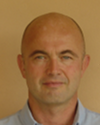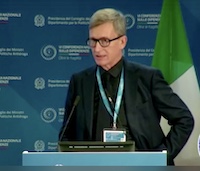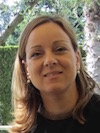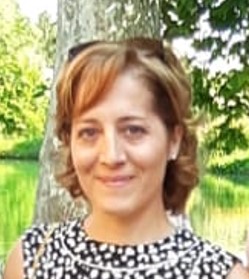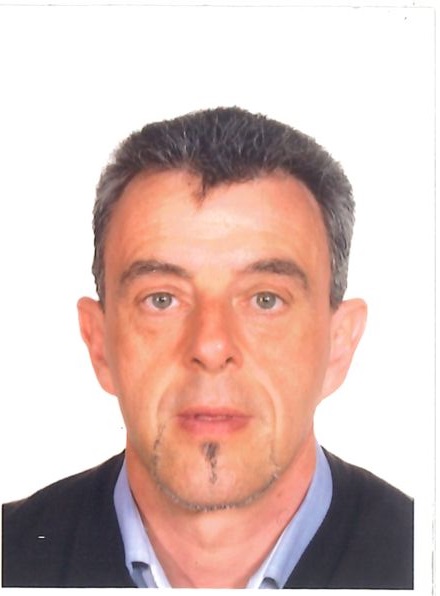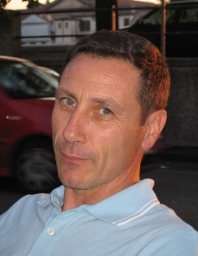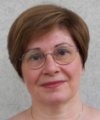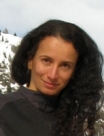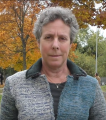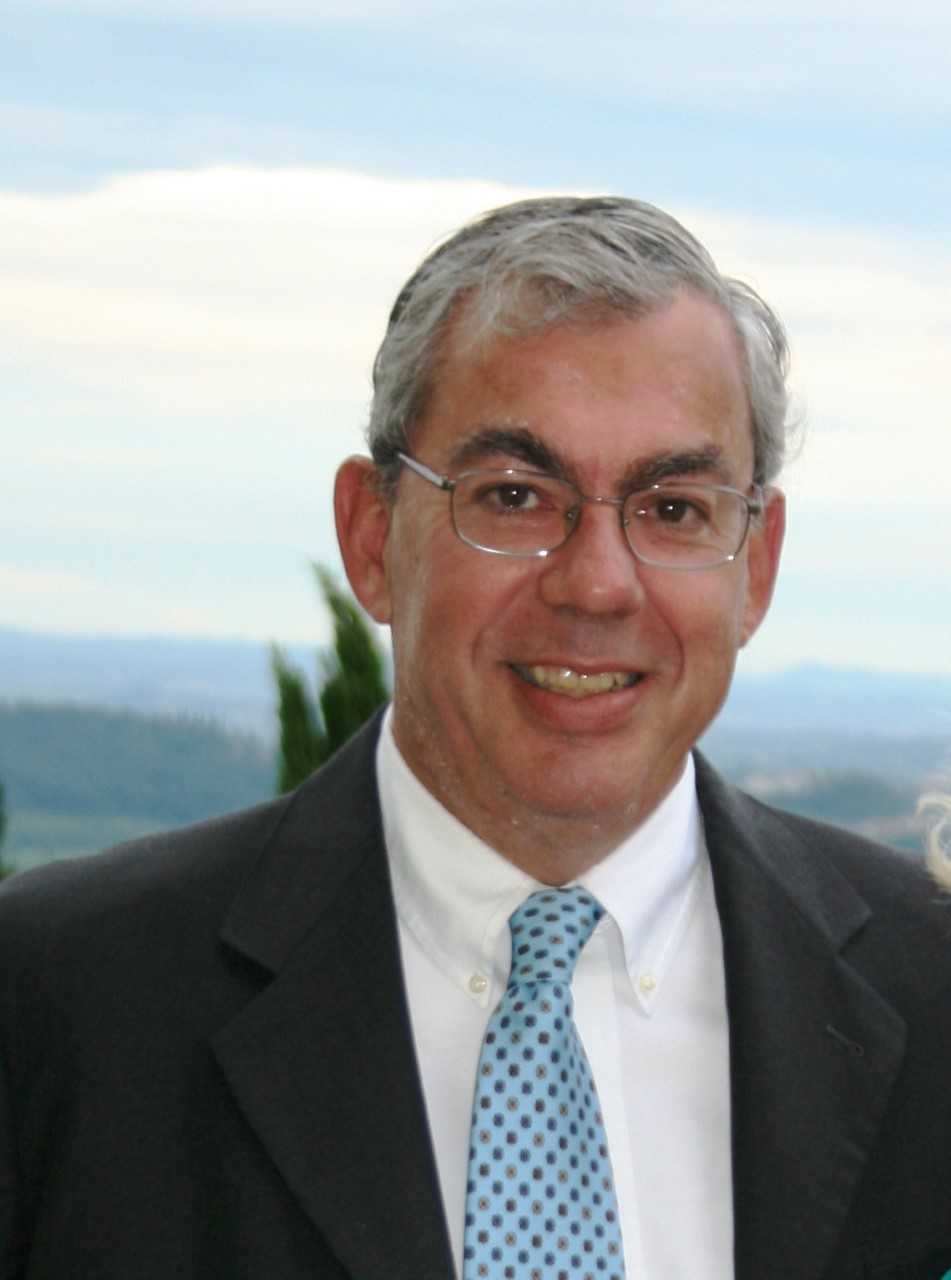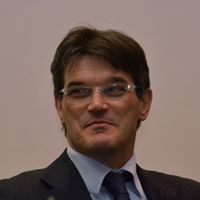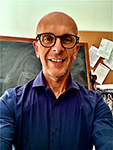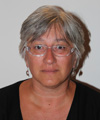Studying at the University of Verona
Here you can find information on the organisational aspects of the Programme, lecture timetables, learning activities and useful contact details for your time at the University, from enrolment to graduation.
Academic calendar
The academic calendar shows the deadlines and scheduled events that are relevant to students, teaching and technical-administrative staff of the University. Public holidays and University closures are also indicated. The academic year normally begins on 1 October each year and ends on 30 September of the following year.
Course calendar
The Academic Calendar sets out the degree programme lecture and exam timetables, as well as the relevant university closure dates..
| Period | From | To |
|---|---|---|
| MOTORIE 1° semestre | Oct 1, 2019 | Jan 24, 2020 |
| MOTORIE 2° semestre | Mar 2, 2020 | May 31, 2020 |
| Session | From | To |
|---|---|---|
| Sessione invernale | Jan 27, 2020 | Feb 28, 2020 |
| Sessione estiva | Jun 3, 2020 | Jul 3, 2020 |
| Sessione autunnale | Aug 31, 2020 | Sep 30, 2020 |
| Sessione straordinaria | Jan 25, 2021 | Feb 26, 2021 |
| Session | From | To |
|---|---|---|
| Sessione Invernale 19/20 | Mar 16, 2020 | Apr 3, 2020 |
| Sessione Estiva 19/20 | Jul 6, 2020 | Jul 28, 2020 |
| Sessione Autunnale 19/20 | Oct 12, 2020 | Nov 3, 2020 |
| Sessione straordinaria 19/20 | Mar 16, 2021 | Apr 9, 2021 |
| Period | From | To |
|---|---|---|
| Festa di Ognissanti | Nov 1, 2019 | Nov 1, 2019 |
| Festa dell'Immacolata | Dec 8, 2019 | Dec 8, 2019 |
| Vacanze di Natale | Dec 23, 2019 | Jan 6, 2020 |
| Vacanze di Pasqua | Apr 10, 2020 | Apr 14, 2020 |
| Festa della Liberazione | Apr 25, 2020 | Apr 25, 2020 |
| Festa del lavoro | May 1, 2020 | May 1, 2020 |
| Festa del Santo Patrono | May 21, 2020 | May 21, 2020 |
| Festa della Repubblica | Jun 2, 2020 | Jun 2, 2020 |
Exam calendar
Exam dates and rounds are managed by the relevant Exercise Science Teaching and Student Services Unit.
To view all the exam sessions available, please use the Exam dashboard on ESSE3.
If you forgot your login details or have problems logging in, please contact the relevant IT HelpDesk, or check the login details recovery web page.
Should you have any doubts or questions, please check the Enrollment FAQs
Academic staff
 paola.cesari@univr.it
paola.cesari@univr.it
 lonardifabiola@gmail.com
lonardifabiola@gmail.com
 dino.mascalzoni@univr.it
dino.mascalzoni@univr.it
 mariateresa.muraca@univr.it
mariateresa.muraca@univr.it
 alberto.nuvolari@gmail.com
alberto.nuvolari@gmail.com
 stefano-venturi@libero.it
stefano-venturi@libero.it
Study Plan
The Study Plan includes all modules, teaching and learning activities that each student will need to undertake during their time at the University.
Please select your Study Plan based on your enrollment year.
1° Year
| Modules | Credits | TAF | SSD |
|---|
2° Year activated in the A.Y. 2020/2021
| Modules | Credits | TAF | SSD |
|---|
1 module among the following3° Year activated in the A.Y. 2021/2022
| Modules | Credits | TAF | SSD |
|---|
| Modules | Credits | TAF | SSD |
|---|
| Modules | Credits | TAF | SSD |
|---|
1 module among the following| Modules | Credits | TAF | SSD |
|---|
| Modules | Credits | TAF | SSD |
|---|
1 module among the followingLegend | Type of training activity (TTA)
TAF (Type of Educational Activity) All courses and activities are classified into different types of educational activities, indicated by a letter.
Introduction to chinesiology and sport (2019/2020)
The teaching is organized as follows:
Learning outcomes
The aim of the course is to gain mastery of nature, contents, languages, ways of measuring and evaluation as well as research purposes in Sport and Exercise Science (Kinesiology). Specific objectives are: - Acquire the awareness of the significance of physical activity in the human experience; - Expand own fine motor skills in wide sectors of human movement; - Orient the students to the study of the various disciplines that analyze human movement; - Introduce students to the professions in the field of Kinesiology; - Know the basic concepts of the epistemology of Kinesiology. The aim of the practical internships is to enable students and students to become aware of the breadth of movement in the human experience by expanding their motor skills in a wide range of movement disciplines.
Program
MM: PROPEDEUTICA CHINESIOLOGICA E SPORTIVA (LEZIONI E TIROCINIO INTERNO INDIRETTO) ------------------------ The course includes a part of theoretical lectures (6 CFU) and some internship modules to be implemented with practical activities in the Faculty (6 CFU). The lessons will be realized with different teaching methods: frontal presentations, thematic seminars, individual and group exercises, laboratories, observational and practical activities (indirect internal internship). Theoretical lessons - Epistemology of Kinesiology - Socialized forms of physical activities - The terminology of professional practice Internship modules: -Educational Gymnastics -Strength Training -Techniques of gymnastics on the musical base -Joint mobilization - Flexibility -Pre-acrobatics -Pre athletics -Expressive Physical Activities - Introduction to bibliographic research Recommended Texts - Lecture notes and materials of the teacher, available on the e-learning site of the course - GEUNA et al., Apparato locomotore – Anatomia funzionale, Cap. 1–2–4. Minerva Medica, Torino, 2004 - Phil Armiger, Micheal A. Martyn. Stretching per la flessibilità funzionale. PICCIN ed. italiana curata da G. Barassi - A.VV. “Il manuale dell’istruttore di atletica leggera” Centro studi Fidal (photocopies available in the library) - De Simone G., 2012. ACSM resources for the group exercise instructor, Wolters Kluver Health – Lippicot Williams & Wilkins - Scotton, Senerega, 2003. Corso di Ginnastica Artistica. Ed. Libreria Cortina Torino - Aavert Everett, 2000. Meccanica muscolare. La tecnica corretta di 73 esercizi con i sovraccarichi. Calzetti Mariucci; Perugia.
Bibliography
| Author | Title | Publishing house | Year | ISBN | Notes |
|---|---|---|---|---|---|
| S. Geuna et al. | Apparato Locomotore - Anatomia Funzionale | Minerva Medica | 2004 | 88-7711-45 | |
| Scotton C., Senerega D | Corso di Ginnastica Artistica | Libreria Cortina Torino | |||
| Hoffman Shirl J. | Introduction to kinesiology (Edizione 2) | Human Kinetics | 2005 | 0-7360-5589-4 | |
| Aavert E. | Meccanica muscolare. La tecnica corretta di 73 esercizi con i sovraccarichi. (Edizione 1) | Calzetti Mariucci | 2010 | 88 8800-406-8 | |
| Armiger p., Martyn M. a. | Stretching per la flessibilità funzionale | Piccin | 2010 | 9788829920716 |
Examination Methods
MM: PROPEDEUTICA CHINESIOLOGICA E SPORTIVA (LEZIONI)
------------------------
The objective of the final evaluation of the course is to ascertain the knowledge of the topics of the program and the ability to apply the knowledge to situations and examples different from those proposed in the course. The final evaluation of the learning outcomes includes:
1. Assessment of presence (70%) and measurement of the level of proficiency in practical activities. The mastery must be understood as an operational knowledge of the principles and rules of the different activities and ability to perform the main moving patterns according to own motor skills.
2. Written test, with multiple choice and open questions, related to the topics of the theoretical modules.
3. All assessments will contribute to the definition of the final evaluation through the weighted average of the votes expressed in thirtieths.
4. In the sessions of examinations subsequent to winter, the written tests will be replaced by an oral interview with the same objectives and arguments.
Type D and Type F activities
| years | Modules | TAF | Teacher | |
|---|---|---|---|---|
| 3° | Physical bases of exercise prescription | D |
Silvia Pogliaghi
(Coordinator)
|
|
| 3° | Advanced nutrition for sports | D |
Silvia Pogliaghi
(Coordinator)
|
|
| 3° | Sport physiology | D |
Silvia Pogliaghi
(Coordinator)
|
|
| 3° | Methods and techniques for body composition measurement | D |
Carlo Zancanaro
(Coordinator)
|
|
| 2° 3° | Physiology of sport nutrition | D |
Silvia Pogliaghi
(Coordinator)
|
|
| years | Modules | TAF | Teacher | |
|---|---|---|---|---|
| 3° | Theory and pedagogy of nordic walking | D |
Barbara Pellegrini
(Coordinator)
|
|
| 2° 3° | Public health applied to exercise | D |
Stefano Tardivo
(Coordinator)
|
|
| 2° 3° | Statistics applied to movement sciences | D |
Maria Elisabetta Zanolin
(Coordinator)
|
|
Career prospects
Module/Programme news
News for students
There you will find information, resources and services useful during your time at the University (Student’s exam record, your study plan on ESSE3, Distance Learning courses, university email account, office forms, administrative procedures, etc.). You can log into MyUnivr with your GIA login details: only in this way will you be able to receive notification of all the notices from your teachers and your secretariat via email and soon also via the Univr app.
Graduation
List of theses and work experience proposals
| theses proposals | Research area |
|---|---|
| ANTROPOMETRIA E COMPOSIZIONE CORPOREA NEL CALCIO | Various topics |
| ANTROPOMETRIA TRIDIMENSIONALE - ESEMPI APPLICATIVI | Various topics |
| Controllo posturale e locomozione in età evolutiva | Various topics |
| EFFETTO DELLA VIBRAZIONE CORPOREA TOTALE SU PEDANA | Various topics |
| Feedback Aumentativo e Apprendimento Motorio | Various topics |
| Il ruolo della fatica cognitiva nella prestazione motoria e nella percezione corporea: teorie di riferimento e strumenti di indagine | Various topics |
Gestione carriere
Student mentoring
Orario lezioni
L’orario delle lezioni comprende
Lezioni Frontali in aula
Esercitazioni e laboratori
Questi ultimi sono organizzati per gruppi dai singoli docenti responsabili dei corsi.
L'orario è pubblicato nel portale studenti
Modalità di frequenza
Vige l'obbligo di frequenza al 70% come specificato nel Regolamento di ogni singolo corso di laurea e laurea magistrale:
Ulteriori informazioni:
L'accesso alle pagine Moodle dei singoli insegnamenti è vincolato alla compilazione del piano di studi.
App Univr Lezioni, FAQ e guida all'utilizzo sono disponibili al seguente link: orario-lezioni-e-modalita-di-frequenza
Comunicati: Avvisi per studenti
Internships
Internships are aimed at enabling students to gain direct knowledge of the world of work and to acquire specific professional skills.
Internships are carried out under the responsibility of an individual lecturer, and can be carried out in professional firms, public administration bodies and companies recognised by the University of Verona.
Any CFU credits gained by doing internships will be recognised and recorded by the University in accordance with the relevant University regulations in force (Regolamento d’Ateneo per il riconoscimento dei crediti maturati negli stage universitari).
For further information on internships, please go to: https://www.univr.it/it/i-nostri-servizi/stage-e-tirocini.
Student login and resources
Recupero Obblighi Formativi - OFA
I corsi di supporto per il recupero degli Obblighi Formativi aggiuntivi - OFA di Chimica, Fisica, Matematica - sono organizzati annualmente e sono segnalati direttamente nell'orario delle lezioni del 1° anno ► vedi pagina.
Al termine di ciascun corso frequentato gli studenti dovranno sostenere e superare una prova scritta per colmare il debito entro il 15 dicembre dell'anno successivo, per potersi iscrivere al 2° anno.
►Date e orari degli appelli sono indicati nel Calendario Didattico - Calendario Esami.
In caso di mancato superamento degli obblighi formativi entro il 15/12, lo studente resterà iscritto al 1° anno anche per l'anno successivo come ripetente, dovrà sostenere la verifica di recupero in un altro appello e NON non potrà frequentare o sostenere gli esami del 2° anno.
Certificazione medica di idoneità
Riferimenti normativi principali: DM 24 aprile 2013 art. 3, GU 169 del 20-07-2013; Decreto del Ministro della Salute dell’8 agosto 2014 e s.m.i.
Per frequentare le attività dei corsi di Laurea e Laurea magistrale di Scienze motorie è obbligatorio presentare la certificazione medica di idoneità fisica per attività sportiva non agonistica. La certificazione è necessaria per accedere alle attività pratiche-esercitative e al tirocinio.
à COME OTTENERE LA CERTIFICAZIONE
La certificazione - riportante l’indicazione che è stato eseguito l’ECG a riposo - può essere rilasciata da:
- centri o servizi di medicina dello sport delle ASL (ora ATS) e delle aziende ospedaliere
- istituti della Federazione Medico Sportiva Italiana
- centri pubblici o privati autorizzati:
- dai medici di medicina generale di libera scelta, relativamente ai propri assistiti;
- dal medico specialista in medicina dello sport.
L’ECG a riposo deve essere ripetuto annualmente.
E’ ammesso anche il certificato medico di idoneità alla pratica sportiva agonistica, per chi ne fosse già in possesso.
à SCADENZA PER LA PRESENTAZIONE
La certificazione medica deve essere prodotta al momento dell'immatricolazione e, comunque, entro l’inizio delle lezioni alla Segreteria Corsi di Studio Scienze motorie. Spetta agli studenti rinnovarla annualmente alla scadenza - per ogni anno di iscrizione in corso o fuori corso. La Segreteria effettuerà periodicamente dei controlli sulla consegna dei certificati.
NOTA: Studenti immatricolati a seguito di SUBENTRO/RIPESCAGGIO/TRASFERIMENTO IN INGRESSO: se non è possibile rispettare la scadenza di presentazione del certificato sopra indicata, avvisare la Segreteria Corsi di Studio Scienze, scrivendo all’indirizzo certmed.scienzemotorie@ateneo.univr.it
à MODALITA’ DI CONSEGNA
La certificazione va inviata alla Segreteria Corsi di Studio Scienze motorie dalla propria e-mail istituzionale nome.cognome@studenti.univr.it all’indirizzo certmed.scienzemotorie@ateneo.univr.it.
Esami propedeutici
Alcuni insegnamenti del piano didattico sono definiti "propedeutici", perchè permettono di acquisire le conoscenze necessarie per affrontare lo studio di insegnamenti successivi. Di conseguenza, è obbligatorio superare gli esami degli insegnamenti propedeutici prima di sostenere gli esami di un anno seguente. Le propedeuticità presenti sono indicate di seguito nella tabella:
| Anno | Esami propedeutici | Anno | Esami che richiedono il superamento di propedeuticità | |
| 1 | Biologia | prima di | 2 | Fisiologia |
| Anatomia umana | ||||
| 1 | Biologia | prima di | 2 | Biomeccanica |
| Anatomia umana | ||||
| 1 | Biologia | prima di | 2 | Tecniche e metodologie dell'allenamento |
| Anatomia umana | ||||
| Biochimica del movimento | ||||
| 2 | Fisiologia | |||
| 1 | Biologia | prima di | 3 | Tecniche e didattica degli sport individuali e di squadra |
| Anatomia umana | ||||
| Biochimica del movimento | ||||
| 2 | Fisiologia | |||
| Tecniche e metodologie dell’allenamento | ||||
| 1 | Biologia | prima di | 3 | Attività motorie preventive e adattate |
| Anatomia umana | ||||
| Biochimica del movimento | ||||
| 2 | Fisiologia | |||
| Tecniche e metodologie dell’allenamento | ||||
| 1 | Biologia | prima di | 3 | Malattie dell'apparato locomotore |
| Anatomia umana | ||||
| 2 | Fisiologia | |||
| 1 | Biologia | prima di | 3 | Farmacologia e cardiologia applicate all'attività motoria |
| Anatomia umana | ||||
| 2 | Fisiologia | |||

 +39 045 842 5117
+39 045 842 5117



